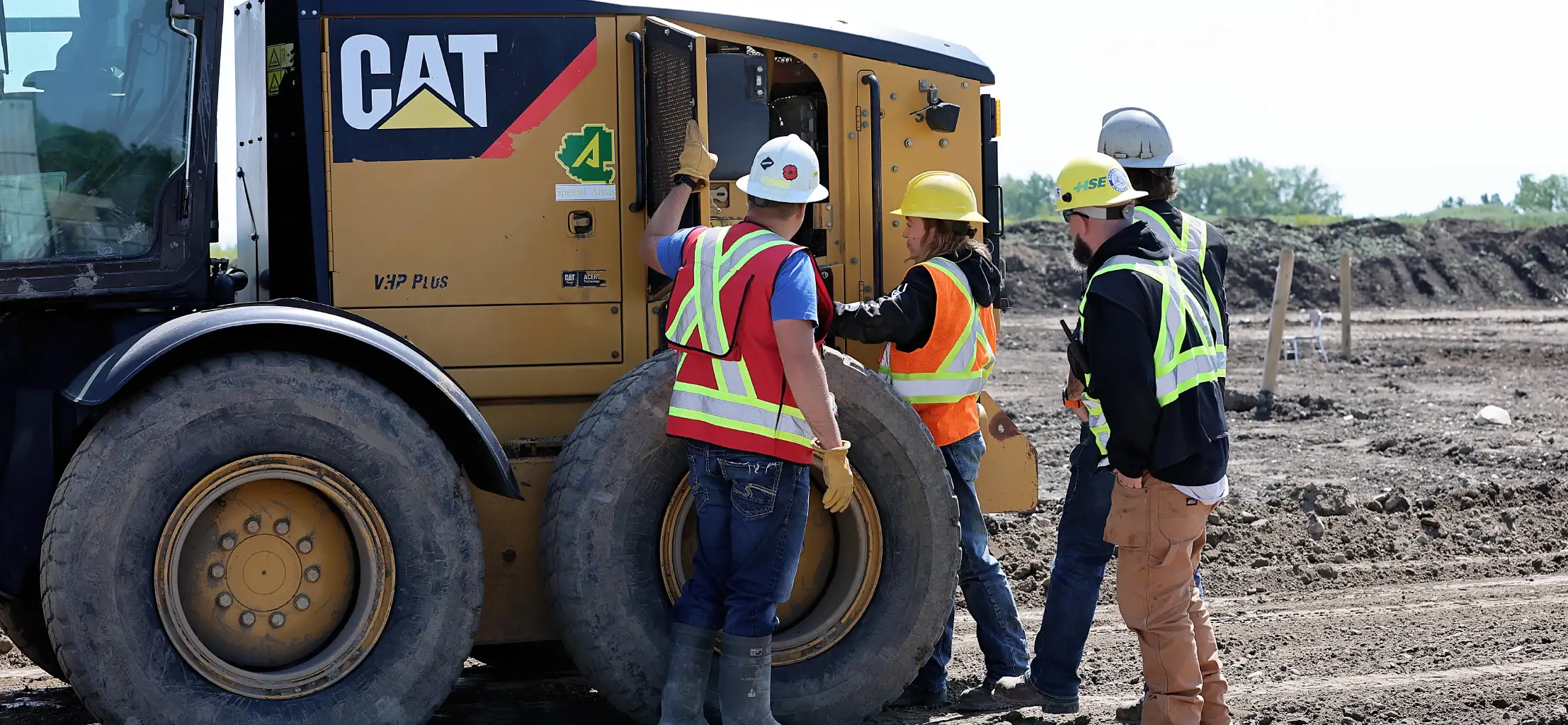Program Dates
Find out when your term start and end dates are, so that you know when you are expected to be in attendance. For more information, please review the Program Dates & Fee Schedule.
Class Registration
You will be registered into your classes automatically. This will happen approximately 1 month prior to the start-date for your program. You will be notified once you have been timetabled into your courses. You will be able to see your class schedule in your My Olds College account. If you need to make any changes to your class registration, please contact the Office of the Registrar.
Technology Recommendation
We recommend that students bring a Windows laptop to complete the online portion of their training. Students will have access to computer labs on campus. As part of your student accounts, all students have access to Office 365 for the duration of their time with Olds College of Agriculture & Technology. To access this you just need to follow these steps:
- Go to portal.office.com
- Enter your Olds College email address and password
- Once logged in there is a button on the right that says "Install Office Apps"
This will give you access to the full Office suite on your computer, for both Windows and Mac based platforms.
Materials & Supplies
Personal protective equipment is required for all field components of the program and must be CSA approved, which includes:
- Steel toe safety footwear (minimum 6” ankle height)
- Safety glasses
- Reflective vest or reflective marked coveralls
- Hard hat (yellow preferred, NOT white)
- Hearing protection
- Work gloves
- Grease gun
Failure to wear this equipment when required will result in dismissal from class, as this is a violation of the Occupational Health and Safety Regulations of Olds College.
A textbook is required for this program. Further details will be communicated with admitted students nearer to the program start date.
Other Important Information
-
Time Requirements: This is a very intense 12 week program. Self study of the printed material is mandatory. Students must be willing to treat this program like a job. The field portion is very much like a work site. This program is heavily weighted in employability skills. It is very important students commit to full attendance.
-
Additional Skills: Mechanical aptitude, good communication skills, exceptional employability skills (i.e. ability to show up on time, abide by worksite & OHS rules, etc).
Required items before your program starts:
-
A new three year, standard driver's abstract must be sent to your Admission Officer before your program starts. It needs to be dated within three months of your program start date.
-
Typically, student loans cover only a portion of the tuition and fees. Please remember to plan accordingly for additional living expenses (accommodation, meals, travel) and the required equipment list.
Training schedule:
-
Week 1: Mandatory safety training on campus (8 a.m. to 5 p.m.). Students complete safety training in their first week (HEO 6001). This is mandatory training and you are required to attend even if you have the tickets already.
-
Weeks 2-12: The gravel pit that training is held at is in the Olds area and students are responsible for driving themselves to the location. Training at the gravel pit takes place over a twelve week period from Monday to Friday with two groups to maximize seat time that students spend in equipment. Group 1 is scheduled from 7:30 a.m. to 1 p.m. and Group 2 is scheduled from 12 p.m. to 5:30 p.m; this program observes Statutory Holidays. Section scheduling requests for training time can be accommodated and sign up forms will be sent approximately one month before your program starts.
